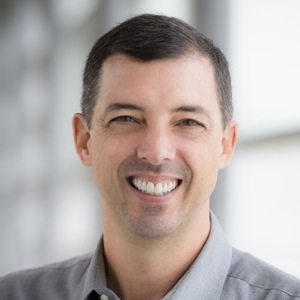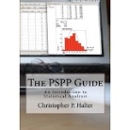
Chris Halter
Chair I Teaching Professor

- Biography
- Brief CV
- Grants and Projects
Biography
I teach at the University of California San Diego's (UCSD) Department of Education Studies. I came to UCSD in 2000 after 10 years of teaching in public K-12 schools. I am fortunate to teach across many of the programs we have here at EDS. My classes include undergraduate students, pre-service credential students in both our Multiple and Single Subject Credential programs, graduate students in our Master of Arts program, and doctoral students in our Ed.D in Teaching & Learning.
My K-12 teaching career began shortly after graduating college in Charleston, SC. I tried out teaching Algebra 1 back at my old high school in 1987. Needless to say this was not an ideal experience. I was extremely underprepared and had not yet experienced much of life. I soon found myself becoming a Navy Supply Officer, serving aboard a small destroyer during the Persian Gulf War. Through my Navy experience I learned about large budgets, comptroller activities, and contracting. After almost 5 years on active duty in the Navy and spent the rest of my Navy career in the reserves, retiring from the Navy in 2007.
After the Persian Gulf War I returned to graduate school to earn my teaching credential. I thought I would give this path another try. This time around I was well prepared and had gained the experience necessary to succeed. I taught in San Diego at Mission Bay High School, Wilson Academy, and West Hills High School. Being credentialed in both life science and mathematics, I found myself teaching a split schedule. At Wilson Academy we experimented with an integrated science & mathematics curriculum, which we create ourselves. The mathematics was taught in service of the science. At West Hills High School I began teaching in both the Science Department and the Mathematics Department. After 4 years of this schedule I found my home within the mathematics department.
Brief CV
Education
- Doctor of Education (Ed.D.) in Teaching and Learning, 2006
- University of California, San Diego (UCSD)
- Master of Arts in Teaching and Learning (Curriculum Design), Emphasis in Technology Integration, 1995
- University of California, San Diego (UCSD)
- Bachelor of Science, 1986
- The College of Charleston, Charleston, South Carolina
Credentials
- California Professional Clear Single Subject Teaching Credential, Mathematics, Life Science, and CLAD certified
- Online Instructor Performance Learning Systems
Recent Book

Halter, C. P. (2012). The PSPP Guide: An Introduction to Statistical Analysis. CreativeMinds Press Group. (Kindle version)
Professional Activities
- Teacher Performance Assessment Consortium (TPAC) Benchmark and pilot implementation (2010 – present)
- Performance Assessment for California Teachers (PACT) Scorer Training (2003- present)
- California Commission on Teacher Credentialing (CTC) Board of Institutional Review (BIR) member. 2008-present.
- Panel Member, Instructional Materials Adoption Panel (IMAP) member for the California Department of Education 2007 Mathematics Material Adoption
- Program/Brochure chair, Greater San Diego Mathematics Council (GSDMC) Executive Board.
Grant Review
- Proposal Reviewer (November-December 2012). Science Foundation of Arizona’s Helios STEM School Pilot program. This pilot is the result of a $4M grant that SFAz received from Helios Education Foundation to help build the Arizona STEM Network and embed STEM education into school and district operations. The aim is to change cultures across Arizona toward higher expectations, improve student outcomes and assist teachers in shifting their practice in concert with newly adopted Common Core Standards (CCSS) and planned Next Generation Science Standards (NGSS).
- Pre-proposal Reviewer (December 2010). Next Generation Learning Challenges Grant – Wave 1. A collaboration among philanthropists, educators, innovators, and technologists focused on scaling today's most creative and innovative IT solutions to improve college readiness and completion, particularly for low-income young adults, providing grants of up to $250,000.
- Grant reviewer and mentor (1997-1999). Digital High School Initiative, California Department of Education. Digital High School education technology grant program, passed in 1997 by the California State Legislature. The program allocates $1 billion in grant money to California public schools over a four-year period.
Grants and Projects
Current
Authored and Co-PI: Robert Noyce Master Teacher Fellowship Grant (NSF) with UCSD Department of Education Studies and Division of Physical Sciences: Principle Investigators: Amanda Datnow, Jeffrey Remmel, and Christopher Halter. Funding Agency: National Science Foundation. Awarded $3,248,491. This five year professional development program will provide 42 local science and mathematics teachers with mentoring and leadership opportunities through summer institutes, targeted online courses, and engagement in a professional network.
Authored and Award Committee: Robert Noyce Teacher Scholarship Grant (NSF) with the UCSD Physical Sciences Division (2009). Principle Investigators: Amanda Datnow and Jeffrey Remmel. Funding Agency: National Science Foundation. Awarded an $892,000 Robert Noyce Teacher Scholarship Program grant from the National Science Foundation. The five-year scholarship program will allow EDS to provide a $12,000 Noyce scholarship to approximately 16 mathematics, chemistry, physics, and geoscience majors annually in UCSD’s EDS undergraduate minor and graduate intern credential program. ($892,000), 2009-2013.
Past
Coordinator: University of CA San Diego Fund for the Improvement of Postsecondary Education (FIPSE) grant with the UCSD Mathematics Department (2006). Principle Investigator: Guershon Harel. Funding Agency: U.S. Department of Education. Role: K-12 community coordinator. This is a three-year grant to develop, assess and disseminate a professional development program for high school mathematics teachers. The program, called DNR-Based Instruction, will emphasize three essential components of teachers’ knowledge base: knowledge of mathematics; knowledge of how students learn; and knowledge of pedagogy, or strategies teachers use to promote learning. Chris Halter co-designs the Mathematics Education Seminar Series, the Countywide Colloquia and presents one or more sessions each year at the Greater San Diego Mathematics Council Annual Conference. He also coordinates the recruitment of teachers to participate in these activities. ($557,877), 2007-2010.
Authored and Coordinator: California Digital High School Educational Grant granted through the California Department of Education ($700,000 initial year with $160,000 each of three subsequent years), 2000-2004.
Visualizing Earth Project. A three year NSF Grant to study the visualization of graphic representations of complex data and the educational potential of emerging technologies and data sources for geographic visualization, with Dan Barstow, Eric Frost, Lynn Liben, and Sally Ride ($1,800,000), 1995-1999. (Teacher Researcher/Participant)
Project YES/KidSat. A three-year pilot education program that uses an electronic still camera aboard the Space Shuttle. The program, a partnership among the Jet Propulsion Laboratory (JPL), the University of California at San Diego (UCSD) and Johns Hopkins University Institute for the Advancement of Youth, 1993-1995. (Teacher Researcher/Participant)
Community of Explorers. A three-year subcontract with Bolt Beranek and Newman, Inc., funded by the National Science Foundation, to study the effects of simulated science laboratories in classrooms connected via telecommunications on teacher planning and lesson implementation. Five high school sites in San Diego County participate in this study of teacher interaction and instructional computer use ($165 000), 1992-95. (Teacher Researcher/Participant)
